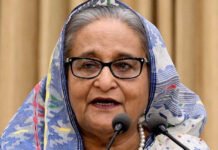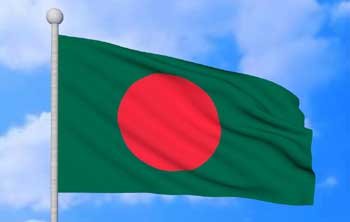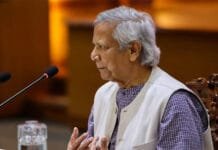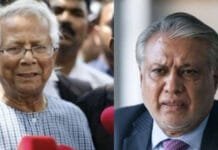Read how the removal of the Hasina government is viewed as Bangladesh’s second independence by the newly appointed Prime Minister, Nobel laureate Muhammad Yunus. Explore the chaos, student movement, and historic changes shaping Bangladesh’s political landscape.
Introduction
Bangladesh is no stranger to political upheaval, but recent events have sent shockwaves through the nation. The removal of Sheikh Hasina’s government and the appointment of Nobel Prize winner Muhammad Yunus as Prime Minister mark a pivotal moment in the country’s history. For many, this change is being heralded as “Bangladesh’s second independence.” In this article, we’ll delve into the chaos that led to this moment, the formation of the interim government, and Yunus’s vision for a new Bangladesh.
The Chaotic Prelude
Bangladesh has always had a vibrant, albeit tumultuous, political scene. The recent unrest can be traced back to widespread dissatisfaction with Sheikh Hasina’s government. Allegations of corruption, economic mismanagement, and suppression of dissent had reached a boiling point. The streets of Dhaka and other major cities were filled with protestors demanding change.
The Student Movement
Central to this upheaval was the student movement, a powerful force in Bangladesh’s political landscape. Thirteen members of the coordination board of this movement played a crucial role in the events leading to the formation of the interim government. These young leaders, representing the voices of thousands, met with President Muhammad Shahabuddin to chart a new course for the nation.
Dissolution of Parliament
In a bold and unprecedented move, President Shahabuddin dissolved the country’s Parliament. This action paved the way for new general elections and the establishment of an interim government. The presence of the chiefs of the three armies during these discussions underscored the gravity and urgency of the situation.
Muhammad Yunus: A Symbol of Hope
Muhammad Yunus, a Nobel Peace Prize laureate known for his efforts to eradicate poverty through the Grameen Bank, emerged as a beacon of hope amidst the chaos. His appointment as Prime Minister was a strategic move, signaling a desire for a fresh start and international credibility.
Yunus’s Nobel Legacy
Yunus was awarded the Nobel Peace Prize in 2006 for his innovative microfinance model, which empowered millions of impoverished Bangladeshis. His dedication to poverty alleviation earned him global acclaim and positioned him as a trusted leader capable of steering Bangladesh through turbulent waters.
A Controversial Figure
However, Yunus’s journey has not been without controversy. Since Sheikh Hasina came to power in 2009, dozens of cases were registered against him. Critics argue these charges were politically motivated, aiming to discredit his influence and undermine his work. Despite these challenges, Yunus has remained steadfast in his commitment to social justice and economic equality.
The Second Independence
In his first address as Prime Minister, Yunus proclaimed the removal of the Hasina government as akin to “Bangladesh’s second independence.” This powerful statement resonated with many Bangladeshis, evoking memories of the country’s liberation from Pakistan in 1971.
A New Vision for Bangladesh
Yunus’s vision for Bangladesh is one of unity, transparency, and sustainable development. He has outlined several key initiatives aimed at transforming the nation:
- Economic Reforms: Implementing policies to stimulate growth, reduce poverty, and create job opportunities.
- Education and Healthcare: Prioritizing education and healthcare to improve the quality of life for all Bangladeshis.
- Anti-Corruption Measures: Establishing robust mechanisms to combat corruption and promote good governance.
- Environmental Sustainability: Addressing climate change and environmental degradation to ensure a sustainable future.
Challenges Ahead
Despite the optimism, Yunus faces significant challenges. The political landscape remains deeply divided, and there are concerns about the interim government’s ability to maintain stability. Additionally, rebuilding trust in governmental institutions will be a formidable task.
The removal of the Hasina government and the appointment of Muhammad Yunus as Prime Minister mark a transformative period in Bangladesh’s history. For many, this moment is seen as “Bangladesh’s second independence,” a chance to rebuild and reimagine the nation’s future. While challenges abound, Yunus’s leadership and vision offer a beacon of hope. As Bangladesh stands at this crossroads, the world watches with anticipation, hopeful that the country will emerge stronger and more united than ever before.













